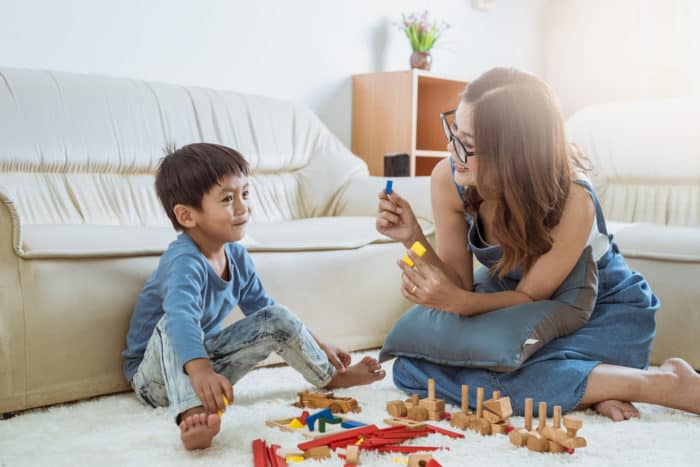Contents:
- Medical Video: 5 Steps to Teaching Perspective-Taking to Children with Social Language Delays
- The key to establishing communication with children
- 1. Show that you always listen to it
- 2. Give feedback after finishing the story
- 3. Ask a few questions
- Things to avoid when communicating with children
Medical Video: 5 Steps to Teaching Perspective-Taking to Children with Social Language Delays
Communicating with your child is easy and difficult, especially if he is still quite small. You must know the best way to communicate with your child so he understands. Not only that, the relationship between parents and children is also very influenced by how you communicate, you know. Then, what is the best strategy for communication with children?
The key to establishing communication with children
There are 3 important things that must be considered by parents to establish communication with children, including:
1. Show that you always listen to it
How do you deal with a child who tells about his complaints at school? Did you respond casually or sit down while listening to the conversation?
Yes, listening to children's talks is not just responding to the conversation. You need to pay attention physically and also show emotion. This will give the impression to the child that you care about him.
The way to show your presence when your child is talking is to look at his eyes, hold his hand, or put your hand on his shoulder or knee. When you do this, take the time and stop the activity you did for a moment to focus on the little one.
2. Give feedback after finishing the story
Being an active listener requires you to respond when your child speaks. At the same time, asking the child to tell more clearly or repeat certain parts that you don't understand. Showing your interest when children tell stories, you can do it in various ways, such as:
- Nodding your head as a sign that you understand the conversation
- Take out short words, "that's how it is ..."
- Repeat the last two or three words spoken by the child to reinforce the story
- Saying "continue ..." gives the child a sign to explain more
3. Ask a few questions
Besides showing attention, you might need to ask a few questions. The question you are asking is not just lip service. However, helping children to improve their understanding and ability to think.
However, don't ask various questions at once. Let children answer questions one by one. If the question does not need more explanation, avoid asking questions that cannot be answered by the child, especially regarding solving a problem that is quite difficult.
Things to avoid when communicating with children
When you learn to be a good listener for your children while trying to improve children's relationships with close parents, there are a number of things you should avoid, such as:
- Don't cut off the child's conversation. Let the child complete the story until it's finished. If not, your attitude that cuts off on the conversation can provoke your child's frustration.
- Look again at your words. Even though you are on that day bad mood, do not let this emotional change make you give a high, tense, or even angry voice. So, you must still control your emotions and be able to adjust your emotions to the atmosphere of the conversation.
- Does not charge children to answer all your questions. The questions you ask are not all that your child can answer. Don't be disappointed, you may need to give him some choices which are most suitable for answering the question.
- So a good example. Good communication that you apply to children, you must also apply to other family members, to your older spouse or siblings. What for? You need to know that children tend to learn and imitate many things from their parents. If you are a good example, your child will also follow your good attitude.















